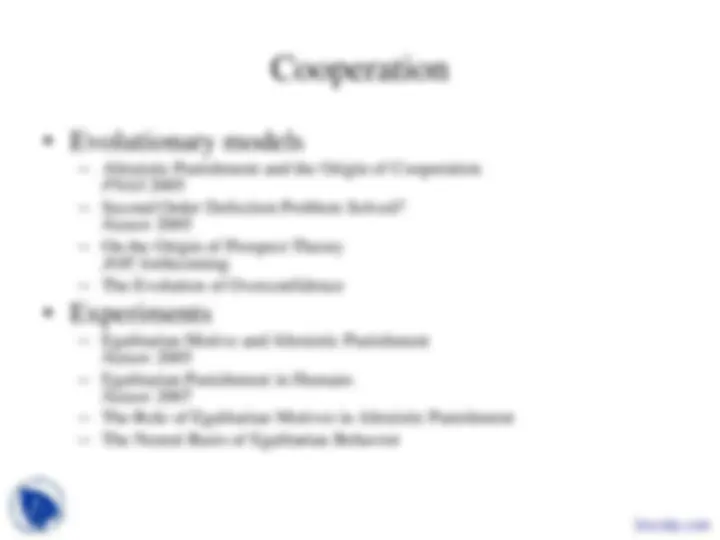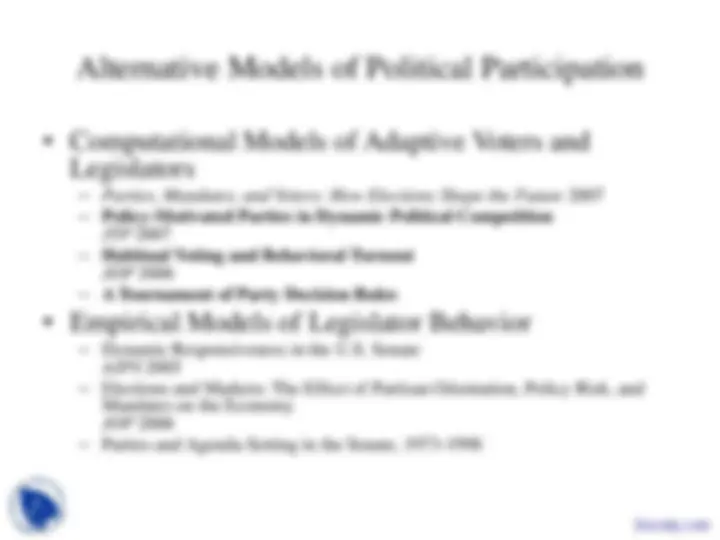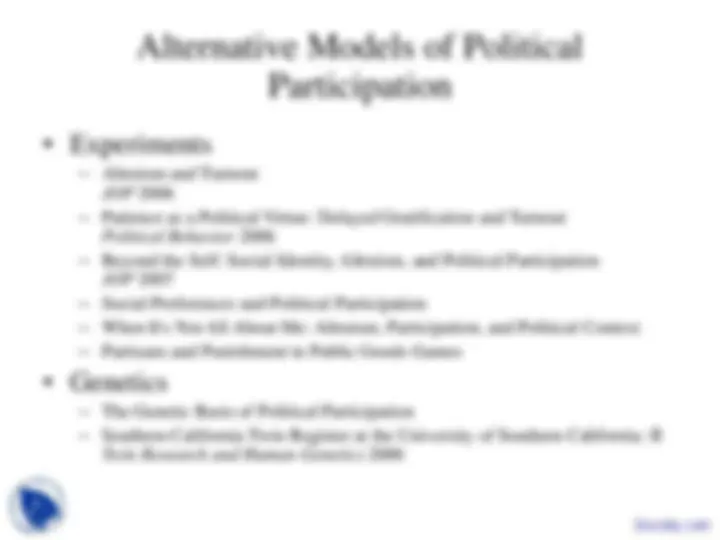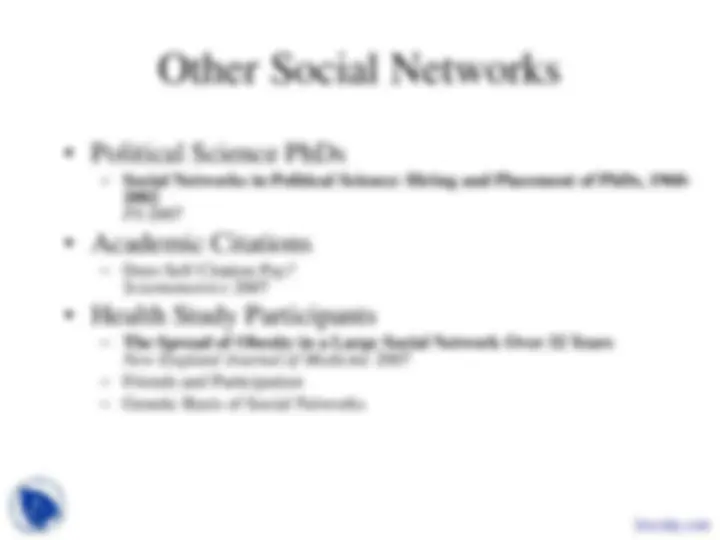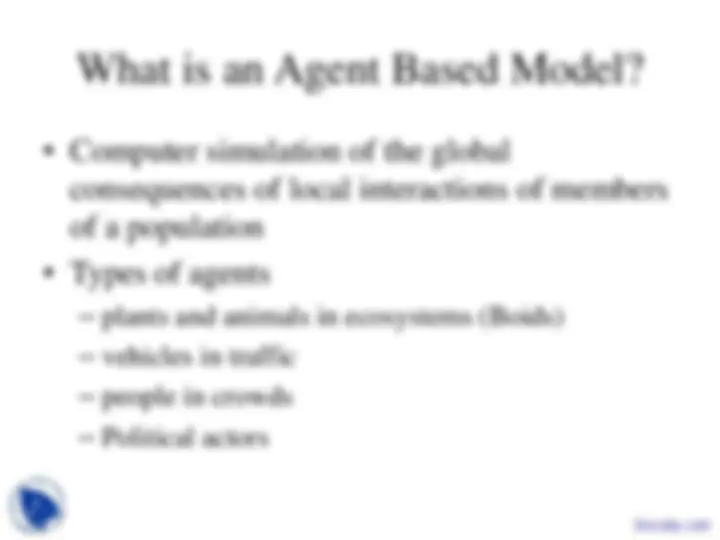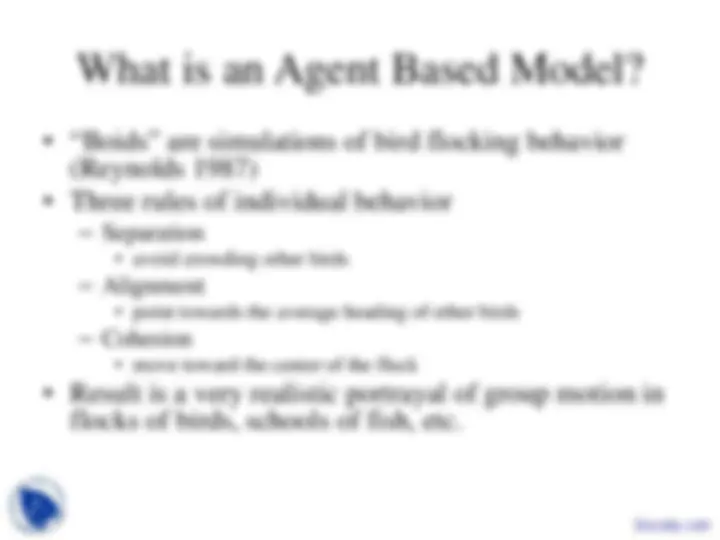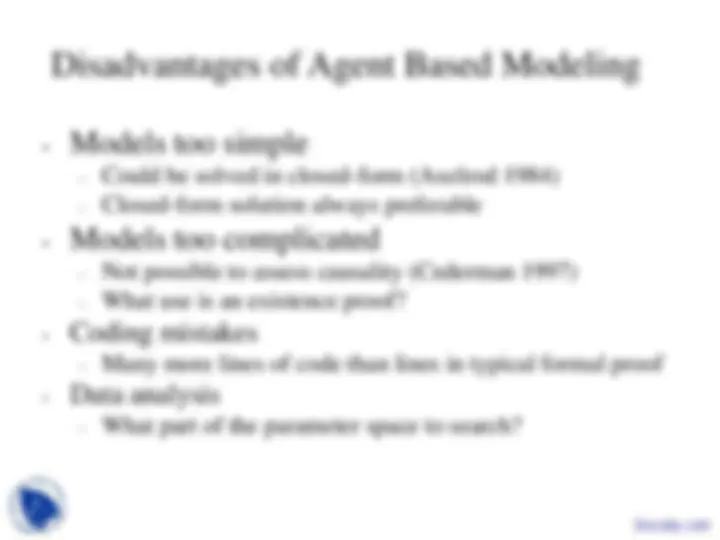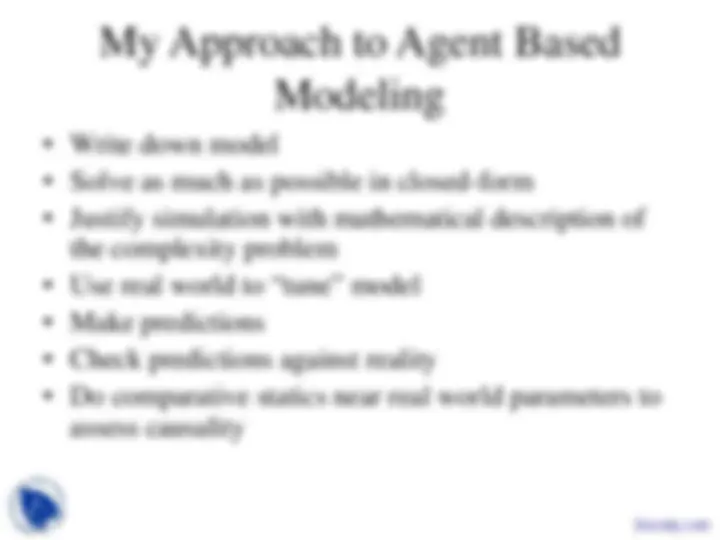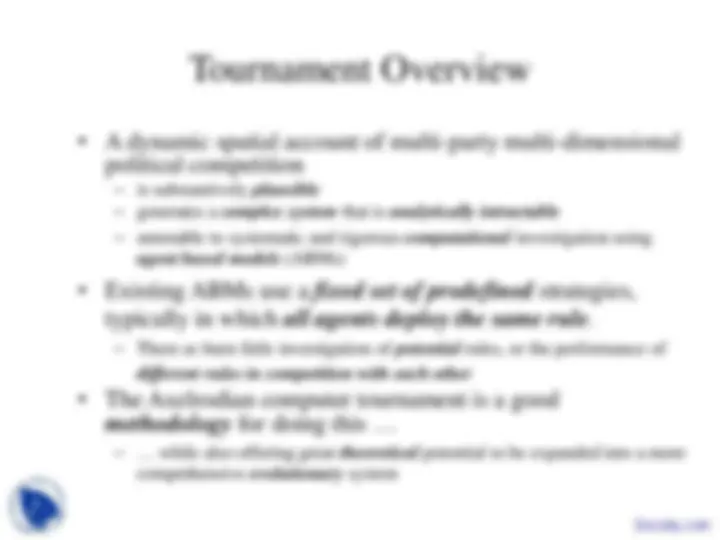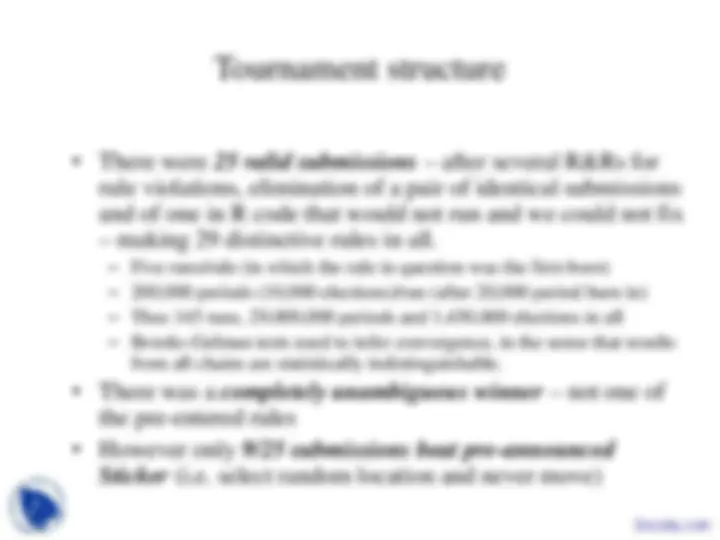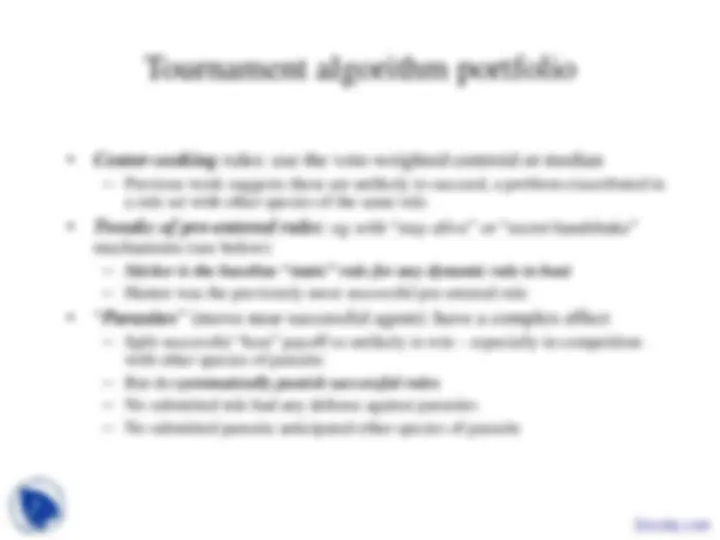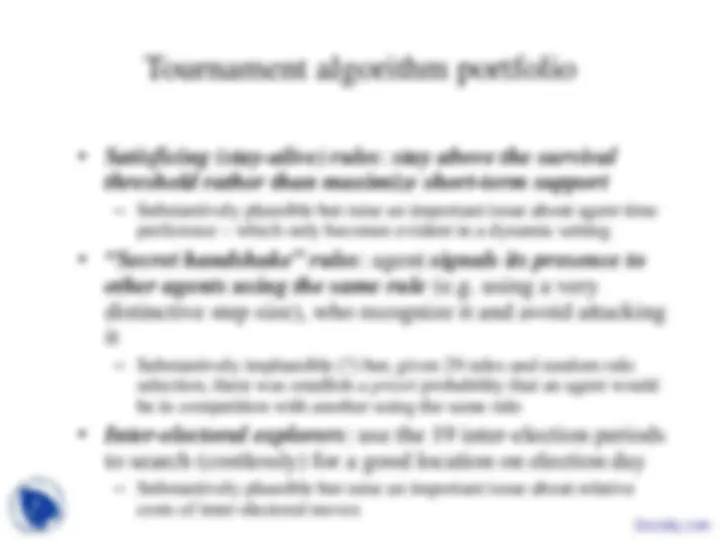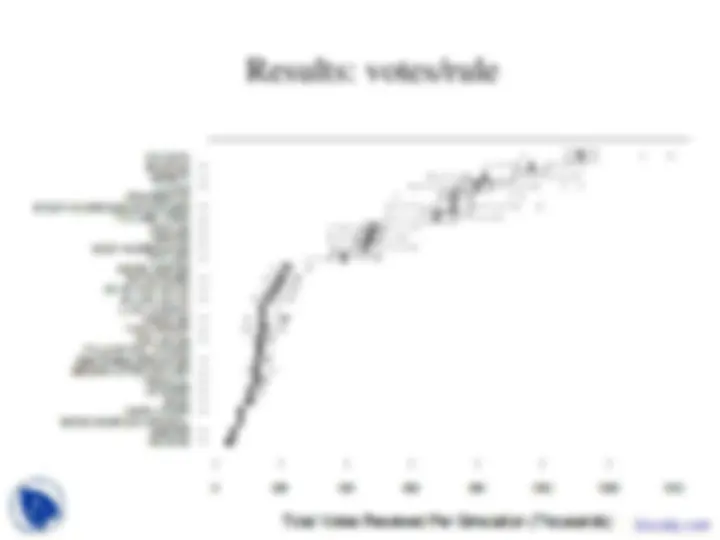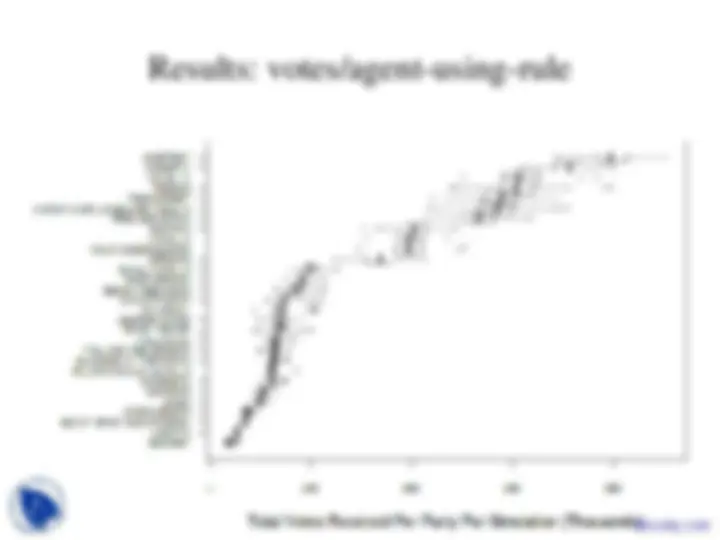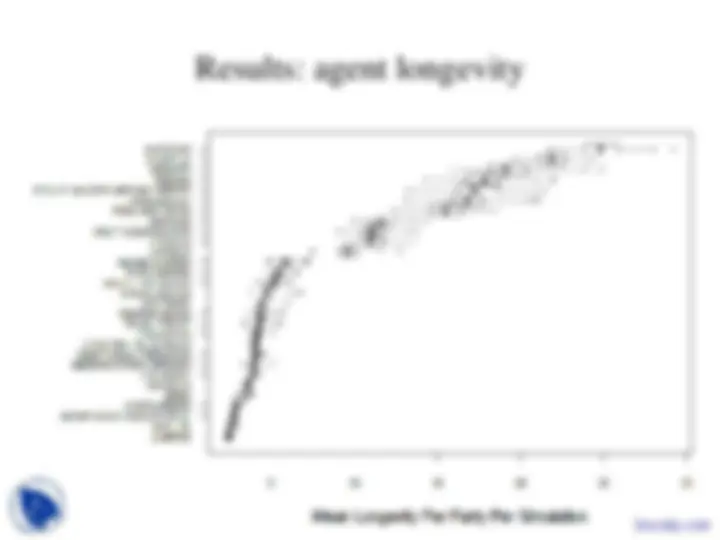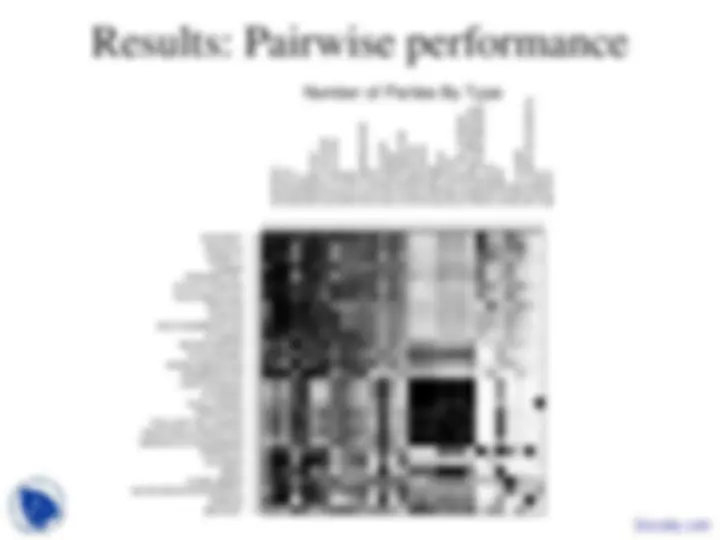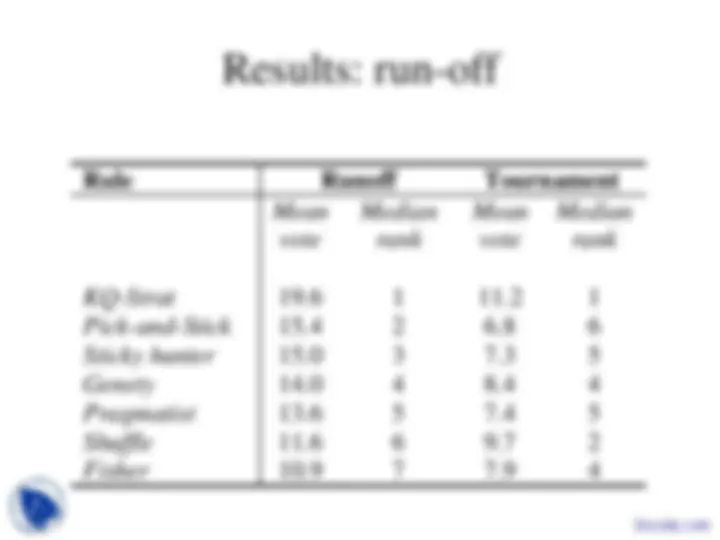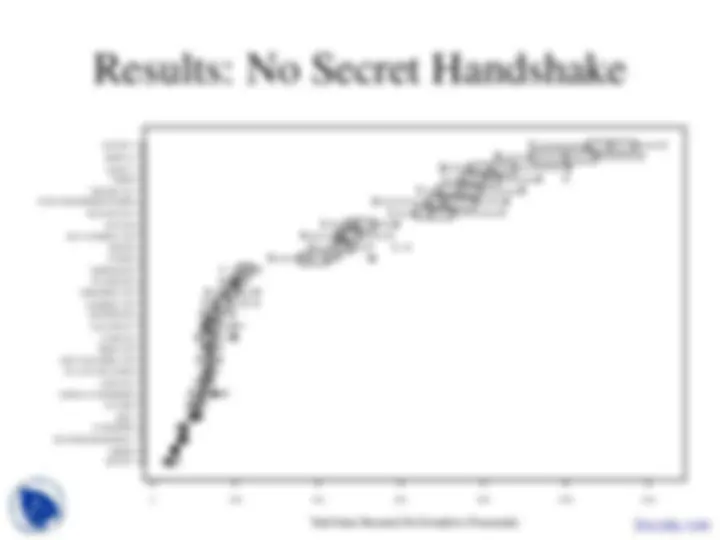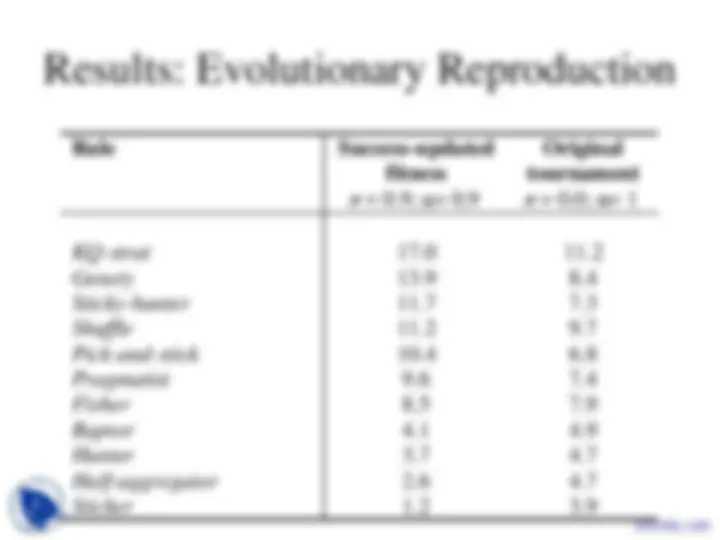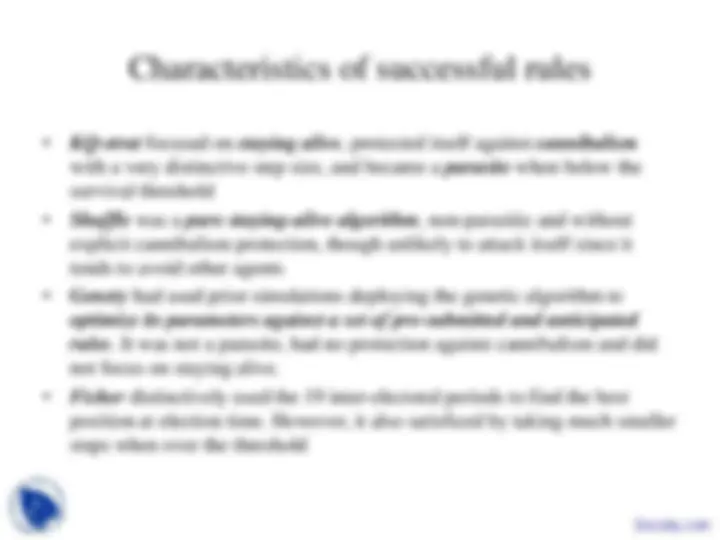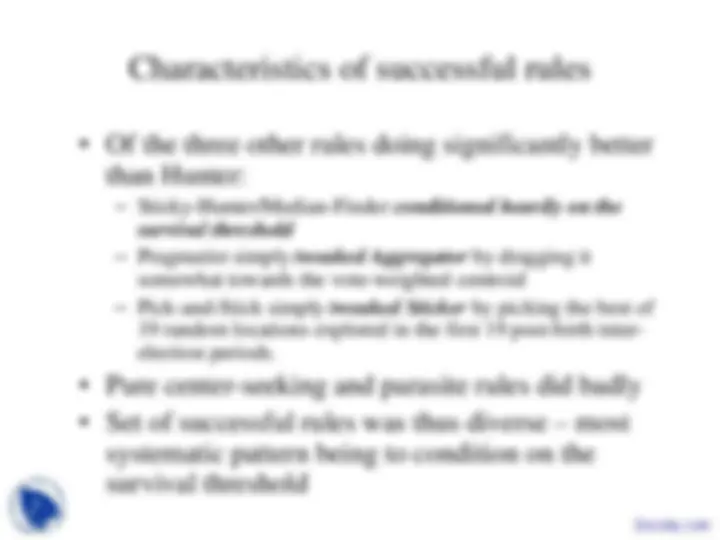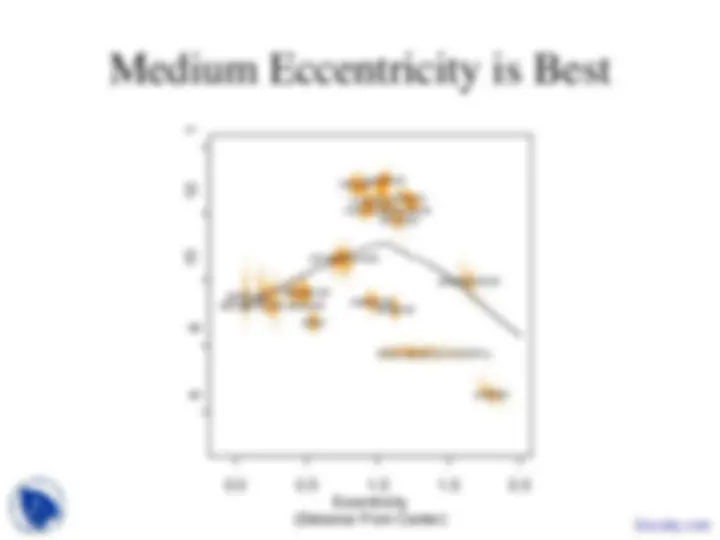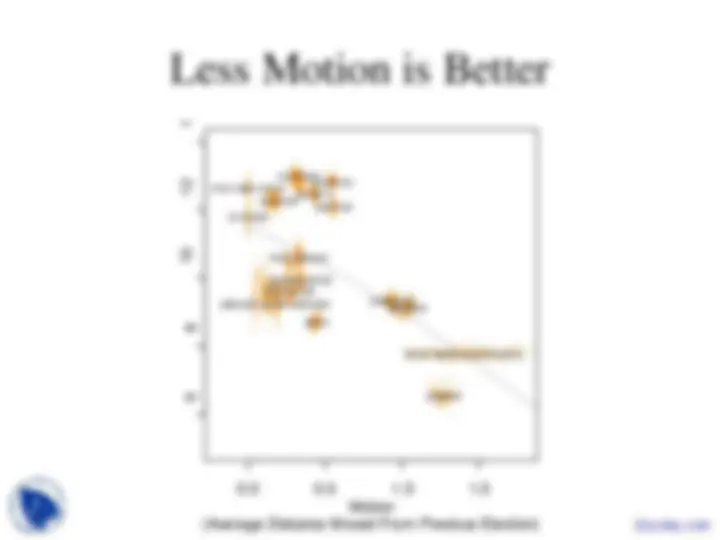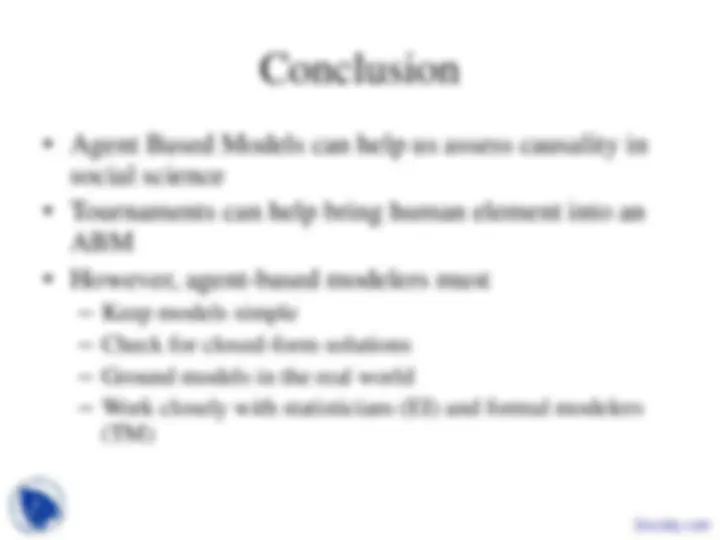Download Agent Based Models - Social Legislation - Lecture Slides and more Slides Introduction to Sociology in PDF only on Docsity!
Agent Based Models
in Social Science
The Big Picture: Collective Action
• Cooperation
• Alternative Models of Participation
• Social Networks
Alternative Models of Political Participation
- Computational Models of Adaptive Voters and
Legislators
- Parties, Mandates, and Voters: How Elections Shape the Future 2007
- Policy-Motivated Parties in Dynamic Political Competition JTP 2007
- Habitual Voting and Behavioral Turnout JOP 2006
- A Tournament of Party Decision Rules
- Empirical Models of Legislator Behavior
- Dynamic Responsiveness in the U.S. Senate AJPS 2005
- Elections and Markets: The Effect of Partisan Orientation, Policy Risk, and Mandates on the Economy JOP 2006
- Parties and Agenda-Setting in the Senate, 1973-
Alternative Models of Political
Participation
- Experiments
- Altruism and Turnout JOP 2006
- Patience as a Political Virtue: Delayed Gratification and Turnout Political Behavior 2006
- Beyond the Self: Social Identity, Altruism, and Political Participation JOP 2007
- Social Preferences and Political Participation
- When It's Not All About Me: Altruism, Participation, and Political Context
- Partisans and Punishment in Public Goods Games
- Genetics
- The Genetic Basis of Political Participation
- Southern California Twin Register at the University of Southern California: II Twin Research and Human Genetics 2006
Political Social Networks
• Court Precedents
- The Authority of Supreme Court Precedent Social Networks, forthcoming
- Network Analysis and the Law: Measuring the Legal Importance of Supreme Court Precedents Political Analysis , forthcoming
Other Social Networks
• Political Science PhDs
- Social Networks in Political Science: Hiring and Placement of PhDs, 1960- 2002 PS 2007
• Academic Citations
- Does Self Citation Pay? Scientometrics 2007
• Health Study Participants
- The Spread of Obesity in a Large Social Network Over 32 Years New England Journal of Medicine 2007
- Friends and Participation
- Genetic Basis of Social Networks
What is an Agent Based Model?
• “Boids” are simulations of bird flocking behavior
(Reynolds 1987)
• Three rules of individual behavior
- Separation
- avoid crowding other birds
- Alignment
- point towards the average heading of other birds
- Cohesion
- move toward the center of the flock
• Result is a very realistic portrayal of group motion in
flocks of birds, schools of fish, etc.
What is an Agent Based Model?
• Comparison with formal models
– Same mathematical abstraction of a given
problem,
– but uses simulation rather than mathematics to
“solve” model and derive comparative statics
• Comparison with statistical models
– Same attempt to analyze data,
– but uses simulation data rather than real data
Disadvantages of Agent Based Modeling
- Models too simple
- Could be solved in closed-form (Axelrod 1984)
- Closed-form solution always preferable
- Models too complicated
- Not possible to assess causality (Cederman 1997)
- What use is an existence proof?
- Coding mistakes
- Many more lines of code than lines in typical formal proof
- Data analysis
- What part of the parameter space to search?
My Approach to Agent Based
Modeling
• Write down model
• Solve as much as possible in closed-form
• Justify simulation with mathematical description of
the complexity problem
• Use real world to “tune” model
• Make predictions
• Check predictions against reality
• Do comparative statics near real world parameters to
assess causality
Tournament ABM test-bed
- We advertised a computer simulation tournament
with a $1000 prize for the action selection rule
winning most votes, in competition with all other
submitted rules over the very long run.
- Tournament test-bed (in R) adapted from Laver
( APSR 2005)
- The four rules investigated by Laver were declared pre-entered
but ineligible to win: Sticker, Aggregator, Hunter and Predator
- Submitted rules constrained to use only published
information about party positions and support levels
during each past period and knowledge of own
supporters’ mean/median location
Departures from Laver (2005)
- Distinction between inter-election (19/20) and
election (1/20) periods
- Forced births (1/election) at random locations , as
opposed to endogenous births at fertile locations, à la
Laver and Schilperoord
- De facto survival threshold (<10%, 2 consecutive
elections)
- Rule designers’ knowledge of pre-entered rules
- Diverse and indeterminate rule set to be competed
against
Tournament algorithm portfolio
- Center-seeking rules: use the vote-weighted centroid or median
- Previous work suggests these are unlikely to succeed, a problem exacerbated in a rule set with other species of the same rule
- Tweaks of pre-entered rules : eg with “stay-alive” or “secret handshake”
mechanisms (see below)
- Sticker is the baseline “static” rule for any dynamic rule to beat
- Hunter was the previously most successful pre-entered rule
- “ Parasites ” (move near successful agent): have a complex effect
- Split successful “host” payoff so unlikely to win – especially in competition with other species of parasite
- But do systematically punish successful rules
- No submitted rule had any defense against parasites
- No submitted parasite anticipated other species of parasite
Tournament algorithm portfolio
- Satisficing (stay-alive) rules : stay above the survival
threshold rather than maximize short-term support
- Substantively plausible but raise an important issue about agent time preference – which only becomes evident in a dynamic setting
- “Secret handshake” rules : agent signals its presence to
other agents using the same rule (e.g. using a very
distinctive step size), who recognize it and avoid attacking it
- Substantively implausible (?) but, given 29 rules and random rule selection, there was smallish a priori probability that an agent would be in competition with another using the same rule
- Inter-electoral explorers : use the 19 inter-election periods
to search (costlessly) for a good location on election day
- Substantively plausible but raise an important issue about relative costs of inter-electoral moves

